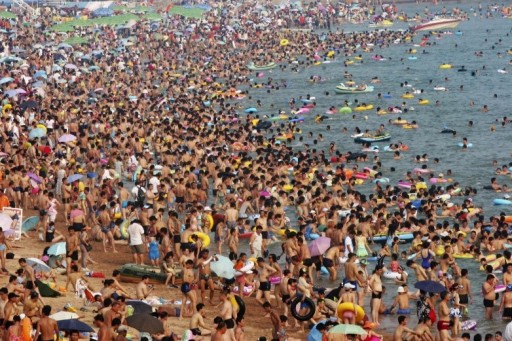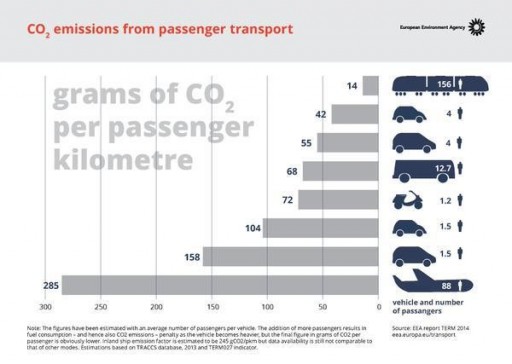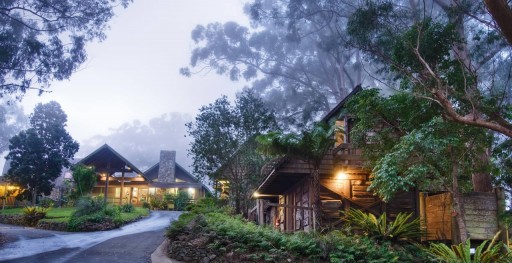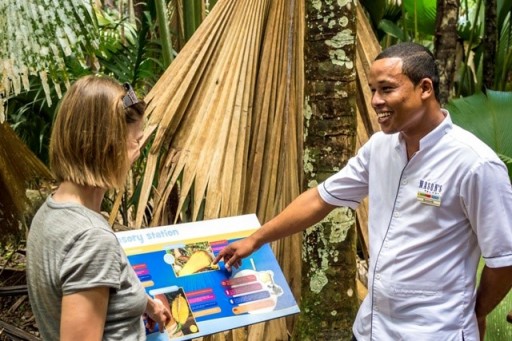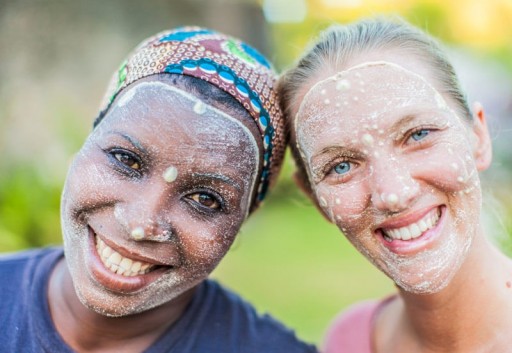I’m Sabrina, 22 years old, from Northern Germany. I am a student of International Leisure Science in Bremen in the third year and currently I am doing an internship at the International Young Naturefriends office in Prague. My great passions are nature and travelling. Having grown up in the countryside and with a high consciousness for environmental issues, I have soon realized that normal mass tourism is not what I want. My study course has shown me even more the impacts of so-called “hard tourism”. But it has also taught me how to turn tourism into sustainable tourism and how to support nature conservation by travelling.
Therefore, I have decided to publish several articles about the subject of sustainable tourism during the next five months of my internship.
This first one is an introduction to the topic and I hope you will enjoy it.
Tourism is one of the biggest industries of our time and is generating around 9.5% of the world’s total Gross Domestic Product. About 11% of all jobs are directly or indirectly related to tourism. The Year 2014 has seen 1133 million people moving and the numbers are growing rapidly. In 2030 there will probably be 1.8 billion tourist arrivals.
But what does that mean for our environment? And when talking of environment we should not only think of the natural environment, but also the local society and economy.
What might sound good expressed in the figures above, in reality is not that positive.
Tourism means movement of people, mostly by car, train or airplane. And this means pollution. Accommodation for tourists in hotels, facilities for indoor (and outdoor) activities cause soil compaction. Tourists leave waste, use sensible paths through earlier uncontaminated nature, and make noise that disturb animals and local inhabitants.
And who knows whether the money tourists spend for their holidays really stay within the destination? The leakage, so to say the percentage of money that is leaving the destinations and instead goes to big companies in the industrial states, in the Caribbean is as high as 80%. Often hotels don’t even employ local people but cheaper workers from developing countries, especially on cruise ships.
Furthermore, while tourists might want to get to know the culture of the land, this is often adapted to expectations created by stereotypes and sold as kitsch.
But does that mean that we shouldn’t travel anymore? Is it better to stay at home?
No, probably not. But you should be aware of certain principles when you decide to go for a holiday. In this way you can even contribute to the protection of the environment, cultures and to the improvement of people’s working and education standards.
It starts with booking the journey, the hotel or maybe some activities. There are many offers to choose from. Be careful not to simply book the cheapest one with the most beautiful pictures.
Here are some things to keep in mind when booking a trip:
The destination and the length of your trip
Where do you want to go? What do you want to do in the destination? Consider just a moment: do you have to leave the country/continent for what you are looking for? Or can you maybe experience the same in your nearer surroundings? Like this you could save a lot of energy and avoid tons of CO2 emissions.
But oversea-travels are great, no doubt! But when planning this, think about the length of your stay. It is better to make one long vacation instead of several short ones during the year. Every journey causes emissions and negative impacts. So jetting to New York for a longer weekend and the next one to Shanghai definitely isn’t environmentally friendly.
And isn’t it a lot more relaxing to have time to discover the destination during two or three weeks? Like this you can really get to know the place, the people and the culture. And when you come back, you have loads of stories to tell to your friends!
The journey
- Travelling by airplane produces about 20 times the CO2 emissions per person of a train and around 6 times compared to the emissions of a small car packed with 4 people. So think twice if it is necessary for you to fly.
- If there is no other option than to fly, think of compensation. There are possibilities to compensate your impact by supporting environmental projects. A good example is atmosfair.de/en/
The accomodation
- All-inclusive resorts may be tempting, but please keep in mind that often these accommodations are run by international chains focussed only on their own profit. When choosing a resort try to find a certified eco-resort, that is interested in fair working condition of local employees, eco-friendly buildings, organic and regional food, waste reduction and efficient energy use.
- Try to find small hotels, pensions or bed-and-breakfasts run by local people and serving regional (organic) food.
- When camping, try to reduce the space for your tent as this damages the soil. Also avoid as much waste as possible and use only as much water as needed. To help the local economy and to discover local habits, don’t bring your own food from home but buy regional food from local (organic) shops.
The activities
- Avoid activities with high environmental impacts, such as motorized tours, trophy hunting, hiking in protected zones not open for the public…
- Respect the rules, stay on paths, keep voice down and do not disturb wildlife on purpose.
- When wildlife-watching, look for labels that confirm that the guides do not use interfering methods that disturb natural behaviour of animals. Prefer watching wildlife from the distance than interacting with wild animals. Feeding and pressuring result in animals changing behavioural patterns.
- Respect other people, their traditions and culture. Do not take photos of people who do not want it. Respect rules like covering body parts when entering a spiritual place etc.
- Be sure activities are led by local guides and/or companies. Often tour operators bring their own guides from the home country. This does not support the local economy and hinders intercultural communication.
- Do not leave waste. When being in the nature take your waste with you and do not drop it.
Interaction with local people and culture
- Try to get in contact with local people, talk to them (if they want), watch their habits and adapt.
- Do not insult locals and do not insist.
- Inform yourself about the local culture before your departure. Like this you can avoid misunderstandings and irritation.
Souvenirs
- Do not take objects, animals or plants out of nature. Take a photo when you see something nice and leave the original to see for other travellers coming after you. Animals and plants can be rare and protected, so taking them, can also result in legal consequences.
- Also do not take parts of cultural monuments. If everyone did that, soon massive centuries-old buildings like the Chinese Wall or the Colosseum in Rome would not exist anymore.
- When buying souvenirs, try to be authentic. Do not buy plastic objects as they have a high impact on nature in their production and disposal.
- Do not support illegal trade. You do not know where the articles come from or what they are made of. Buy legally from local people.
- Be careful when buying souvenirs of animal or plant origin, such as jewellery made of corals or shells. Often you cannot directly see that it is made from protected species or you simply do not know it. CITES offers information on what you can buy or not. You can find CITES on their website (https://www.cites.org/) and at almost every airport
Reminding this as a guideline for your next holidays, will definitely reduce your negative impact on nature, local society and economy.
But tourism can also actively contribute to the conservation of the natural, social and economic environment.
The time of a society based mainly on agriculture is over. If it wasn’t for tourism, many natural landscapes would lose their value. Sustainable Tourism can actually add value to nature and small communities and their cultures. Tourism, as said in the beginning of this article, brings money. This money can be used to maintain nature by establishing National Parks and Protected Areas, employing and training specialized staff and financing environmental education for local people and tourists.
By employing local staff also professional training and education will be supported. This means for developing countries a rising of educational level and job opportunities. Money that is spent by the tourist directly in the destination at local shops, support the economy and the improvement of living standards.
It is not always easy to find offers that fulfil the requirements for a sustainable holiday, but it is worth looking for it.
Travelling is a wonderful experience and it should be possible for all of us and also for coming generations. If we don’t try to minimize the impact of our travels we will soon destroy what is the basis of it: nature, culture and people!
Sources:
http://www.sustainabletourism.net/
http://transpressblog.com/2015/04/07/create-a-greener-rail-environment-with-marmoleum/
http://www.binnaburralodge.com.au/accommodation/mountain-lodge
http://www.iboisland.com/activities/guided-historical-and-cultural-island-tours/
http://www.responsibletravel.com/copy/about-to-go-on-holiday-think-twice-about-your-souvenirs

